The year in news reviewed, part two: Stories that shaped 2020
In the second part of our look back at 2020 we revisit the big stories of the middle of the year. Read Part one and Part three.
June
New Zealand seems to be getting on top of the pandemic with Prime Minister Jacinda Ardern on 2 June flagging Cabinet will consider moving to Alert Level 1 on 8 June, earlier than previously indicated.
Ardern said the results of the strict lockdown rules had been probably even better than Director-General of Health Ashley Bloomfield had predicted.
By 5 June New Zealand marks 14 days of no new cases of Covid-19, with just one active case remaining.
Dr Ashley Bloomfield says the ministry is confident it has eliminated community transmission on 8 June.
“At this point we are very confident we have eliminated community transmission in New Zealand,” Dr Bloomfield said.
On the same day New Zealand moves to Alert Level 1.
The prime minister said the country was ready, now 40 days since the last recorded case of community transmission, 26 days after entering Alert Level 2, 17 days since a new case, and less than 24 hours since having zero active cases recorded.
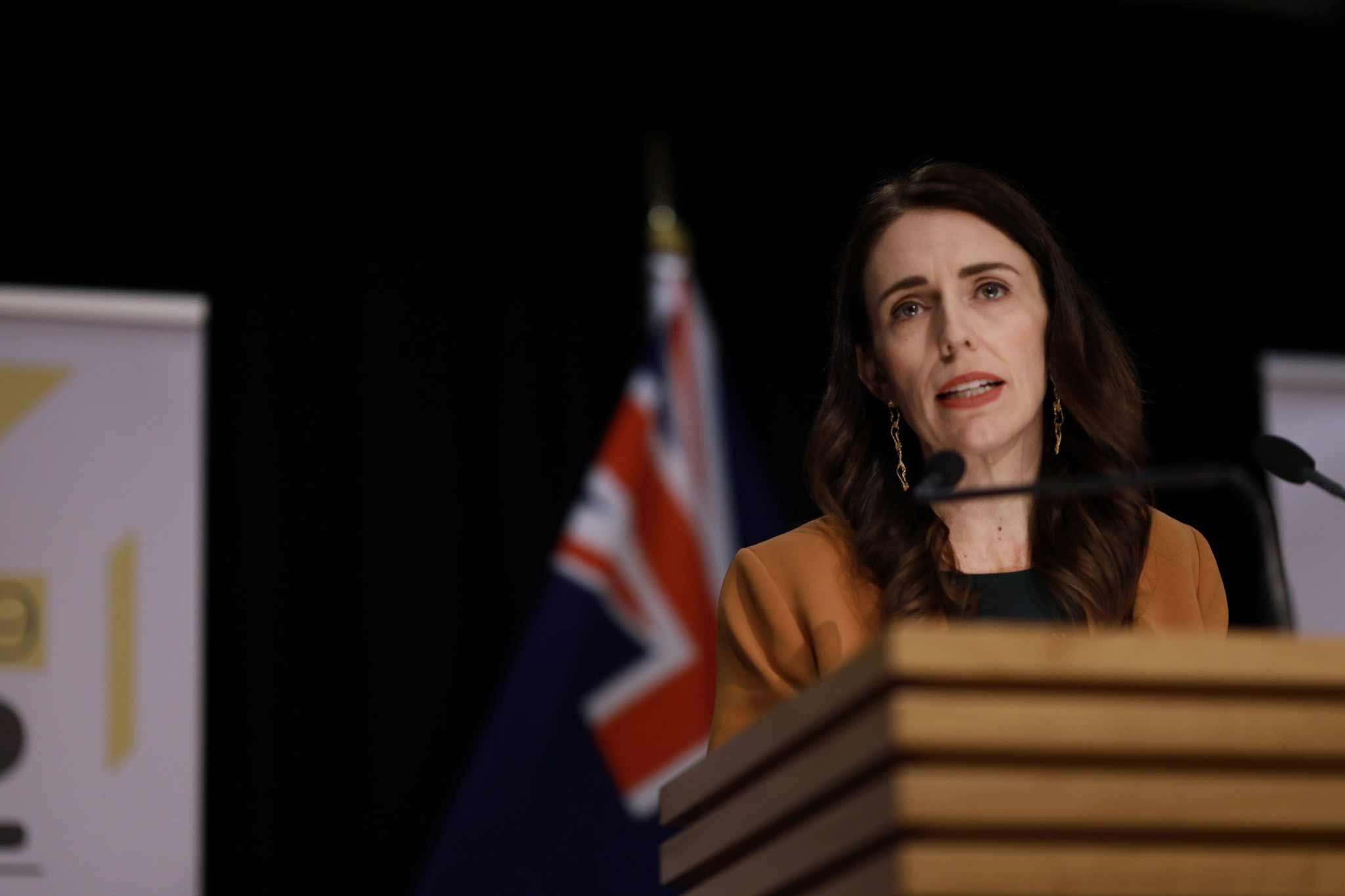
Prime Minister Jacinda Ardern reveals move to level 1 from midnight
Earlier in the month the government takes steps to tackle period poverty by providing free products in schools.
It was also revealed New Zealand’s security intelligence agency, the SIS, carried out multiple clandestine raids, breaking into foreign embassies in Wellington in the latter part of the 1980s, in breach of the Vienna convention.
RNZ podcast, The Service, revealed on 9 June that one of the raids was on the Czechoslovakian Embassy in Wellington in 1986 and was a joint operation with Britain’s MI6 to steal the Warsaw Pact codes.
The story has been brought to light by Wellington writer and documentary maker John Daniell, whose mother and step-father both worked for the SIS.
Police Commissioner Andrew Coster announces on 9 June that Armed Response Teams will not be part of the New Zealand policing model in the future.
A controversial statue of Captain John Hamilton is removed from Civic Square in Hamilton on 12 June where it has stood since 2013.
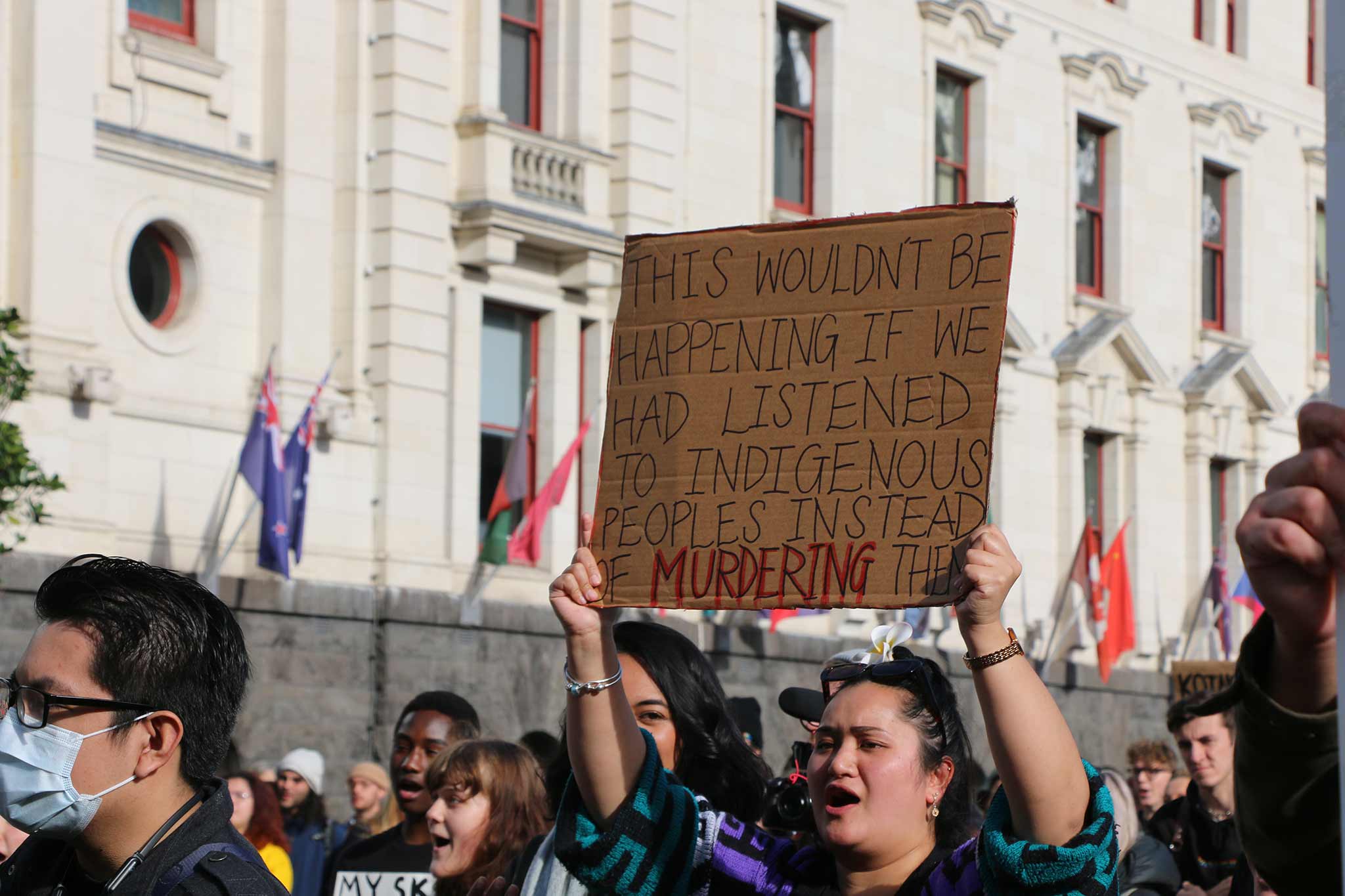
Thousands of New Zealanders marched at Black Lives Matter rallies in Auckland, Wellington and Dunedin on 14 June.
Across the US there have been protests over the death of George Floyd, an unarmed black man in police custody. Since then, the Black Lives Matter movement has come to life in many countries, with protesters taking to the streets, demanding an end to police brutality and racism.
July
David Clark formally resigns as Health Minister on 2 July after controversies over his handling of the Covid-19 response.
He had been under pressure since the start of the government’s response to Covid-19 in March.
He first came under fire when it was revealed he took a trip to a beach with his family in the first week of Alert Level 4 lockdown. Although he offered to resign at the time, the prime minister reprimanded and demoted him but did not sack him.
The Dunedin-based MP also admitted to a second breach, after driving to a mountain biking track during lockdown.
And he faced a backlash after repeatedly saying Director-General of Health Dr Ashley Bloomfield was the person responsible for failures at the border, and only taking responsibility himself as minister after several days. The Prime Minister accepted his resignation.
State Services Minister Chris Hipkins says on 4 July the government will do everything it can to track down who is responsible for a massive privacy breach relating to New Zealand’s active Covid cases and is not ruling out pursuing criminal charges.
An investigation has been ordered into the breach, with a leak revealing the personal details and identities of New Zealand’s 18 active Covid cases with criminal charges possible if leak source is identified.
National MP Hamish Walker announces on 8 July he will not stand for re-election for the Southland electorate in the 2020 election.
The backbencher was behind the leak of Covid-19 patient details to media.
The leak plot thickens with National MP Michael Woodhouse saying he deleted emails from Michelle Boag and told National leader Todd Muller about them.
Woodhouse told Nine to Noon Boag called him on Sunday 21 June to tell him she had information that could be “pertinent” to the Covid-19 response and “helpful” to him.
“I opened that email, realised what it was, realised it was not appropriate for me to have it or use it, and I closed it down.”
He said three more emails were sent after that, but he never opened them.
High-profile former National Party president Michelle Boag resigns 8 July from her campaign and electorate roles for Auckland Central MP and National deputy leader Nikki Kaye.
Boag was responsible for leaking Covid-19 patients details to Hamish Walker, who then passed that information on to media.
The minister in charge of quarantine and isolation facilities Megan Woods labels a National MP’s comments about New Zealanders returning from Asia as disgraceful and racist.
A tourism company facing a downturn in cruise ship passengers has shifted its focus to heritage rail journeys for New Zealanders.
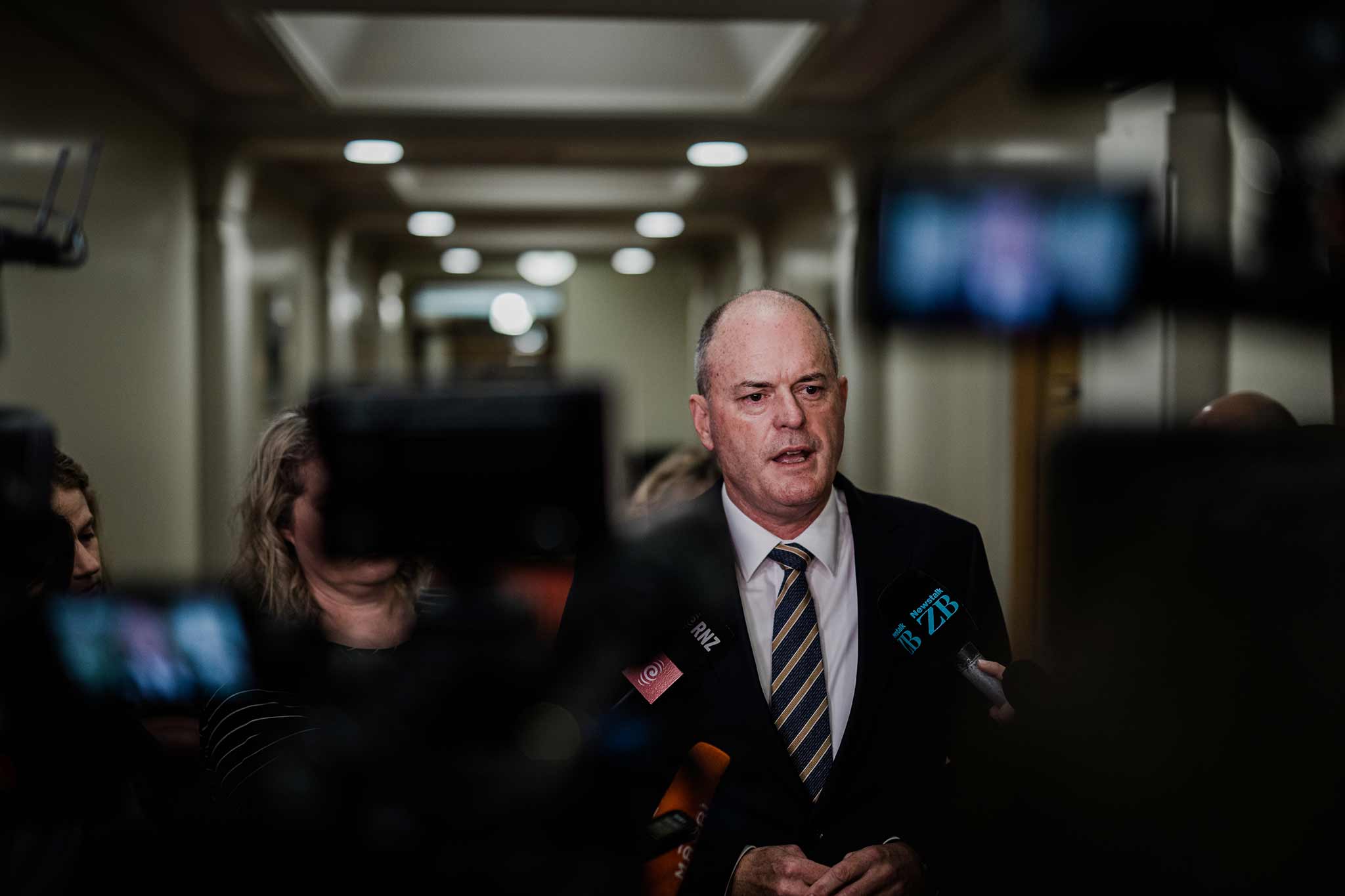
A horror month for National continues as Todd Muller resigns as party leader on 14 July after just 53 days in the job.
“It has become clear to me that I am not the best person to be Leader of the Opposition and Leader of the New Zealand National Party at this critical time for New Zealand,” he said.
The role, he said, had taken a heavy toll and had become “untenable from a health perspective.”
The National Party elects Judith Collins as its new leader to replace Todd Muller, with Gerry Brownlee as her deputy on the same day.
“I think it’s really important that we all have a common goal … to get rid of the current government and put in place a better government,” she said after emerging from the caucus meeting.
Judith Collins strips Michael Woodhouse of the health portfolio because of his involvement in the Covid-19 data leak saga.
Woodhouse did not tell the party’s former leader Todd Muller or health officials that Boag had sent him four emails containing the private information for two weeks and deleted the data the day a State Services inquiry was announced.
Dr Shane Reti replaces him and is promoted to the front bench.
New National leader Judith Collins has revealed her reshuffled caucus, promoting former leaders Simon Bridges and Todd Muller to the party’s front bench on 16 July.
More political careers come crashing down as National MP Andrew Falloon resigns after it was revealed the Rangitata MP apparently sent an indecent image - not of himself - to a 19-year-old woman.
And Iain Lees-Galloway is sacked from Cabinet on 22 July following revelations of a relationship with a former staffer.
August
The Director-General of Health says community transmission of Covid-19 in the country is inevitable and people should not be complacent about keeping a record of where they’ve been.
And he was right; on 9 August New Zealand notches up 100 days without community transmission of Covid-19.
And two days later this:
After 102 days without community transmission, Jacinda Ardern confirms New Zealand has reported its first Covid-19 case acquired from an unknown source.
Four positive cases of Covid-19 outside of managed isolation or quarantine are announced on 11 August and New Zealand is now activating a resurgence plan.
Auckland moves to Alert Level 3 restrictions from 12pm on 12 August. The restrictions are to last three days until midnight Friday. The rest of New Zealand will move to Alert Level 2 at the same time.
And panic makes an unwelcome return with supermarket websites overloaded and queues forming outside shops in Auckland.
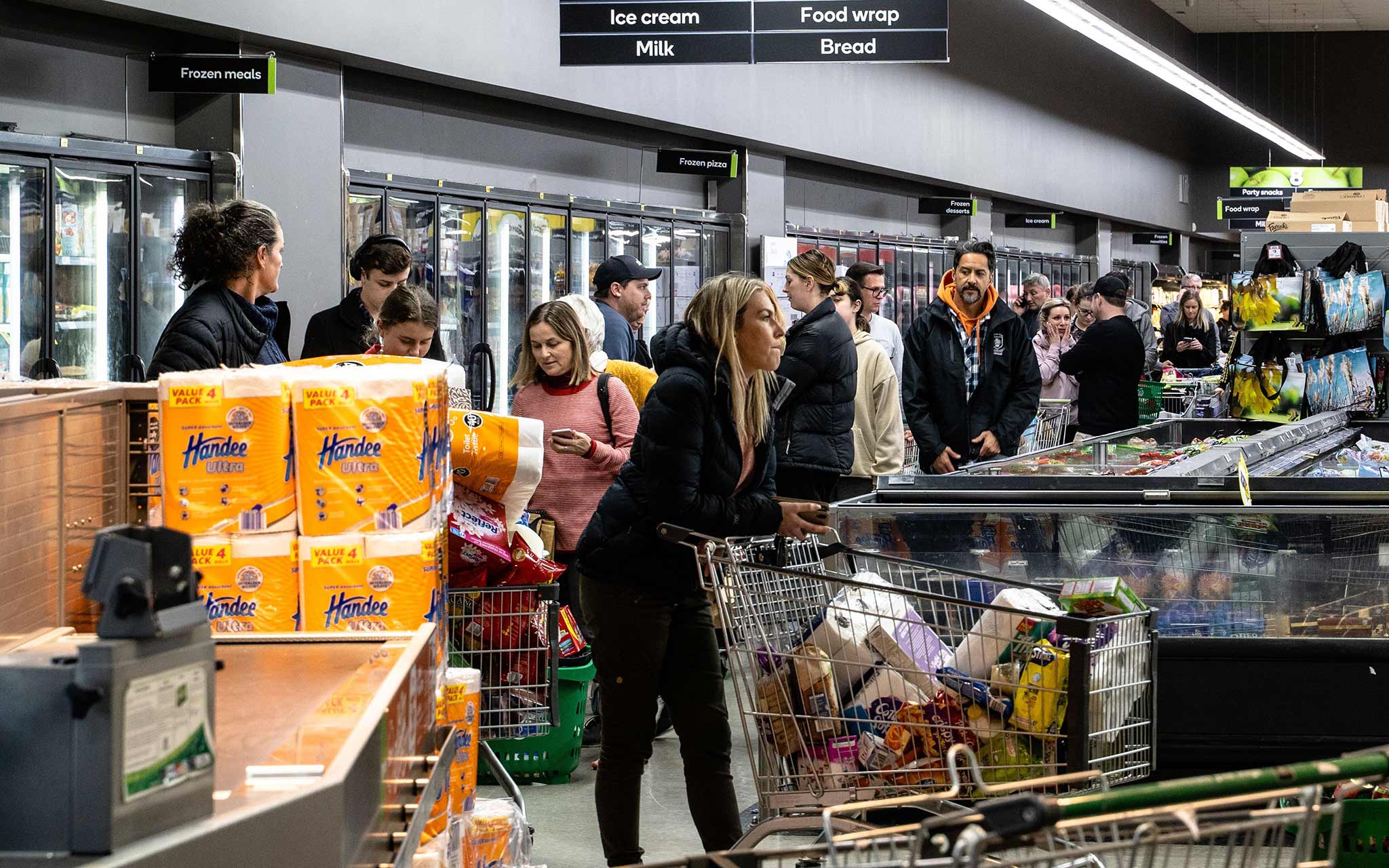
With cases in the community climbing — there are now 17 — Auckland remains at Alert Level 3 for a full two weeks, with the government announcing the country will remain at current Covid-19 alert levels for 12 more days.
Prime Minister Jacinda Ardern and Director General of Health Ashley Bloomfield announce the decision at a briefing at the Beehive on 14 August.
And the election date gets shifted on 17 August with Jacinda Ardern moving the election to 17 October saying she will not be changing it again.
The man who carried out the mosque attacks in Christchurch on 15 March 2019 is sentenced to life in prison without the possibility of ever leaving jail.
And as the month ends, the Prime Minister says Auckland will shift to “Alert Level 2.5” from midnight 30 August, despite experts’ fears it could lead to an increase in case numbers.
September
New Zealand is near the bottom of a UNICEF league table ranking wealthy countries on the wellbeing of their children.
Of the 41 OECD and European Union countries surveyed, New Zealand ranked 35th in overall child wellbeing outcomes - and UNICEF says that is failing children.
In better news, it ranks second in a Forbes report on the safest countries during the Covid-19 pandemic.
New Zealand’s largest women’s prison has a “punitive culture” where guards are too quick to resort to force and women’s health needs go unmet because of a lack of staff, according to an internal Corrections review on 7 September.
A report into Auckland Region Women’s Correctional Facility in Wiri Prison highlights poor conditions and dysfunctional management at the jail.
A review into the prison, and documents obtained under the Official Information Act, highlight poor conditions and dysfunctional management at the jail, which houses more than 400 of the country’s 630 female prisoners.
Labour leader Jacinda Ardern promises to make Matariki a public holiday if re-elected. She made the pledge to mark the start of the Māori New Year while campaigning in Rotorua on 7 September.
National finance spokesperson Paul Goldsmith said the policy was “tone deaf” considering the economic situation.
“More and more New Zealanders want to celebrate Matariki, but if it is to take the form of a public holiday it should replace an existing one.
We report a modern-day gold-rush on the West Coast with people flocking there lured by the appeal of being mortgage-free.
And it seems regional centres generally are faring well in the midst of the pandemic.
Famously labelled zombie towns, regional centres are bearing up well through the Covid-19 crisis off the back of the rural economy and extremely low case numbers.
Fake news, misinformation and conspiracy theories are threatening to derail the country’s Covid-19 response and impede progress to Alert Level 1.
The government sounded a strong warning after revealing people linked to a Mt Roskill church cluster were sceptical about the seriousness of the pandemic — while a researcher is raising the alarm about far-right groups and fringe political leaders also entering the fray.
Minister of Health Chris Hipkins said to “think twice before sharing information that can’t be verified”.
Meanwhile the conspiracy-inclined gathered in Auckland’s Aotea Square on 12 September at the “National Rally for Freedom”, organised by Advance Party co-leaders, Jami-Lee Ross and Billy Te Kahika.
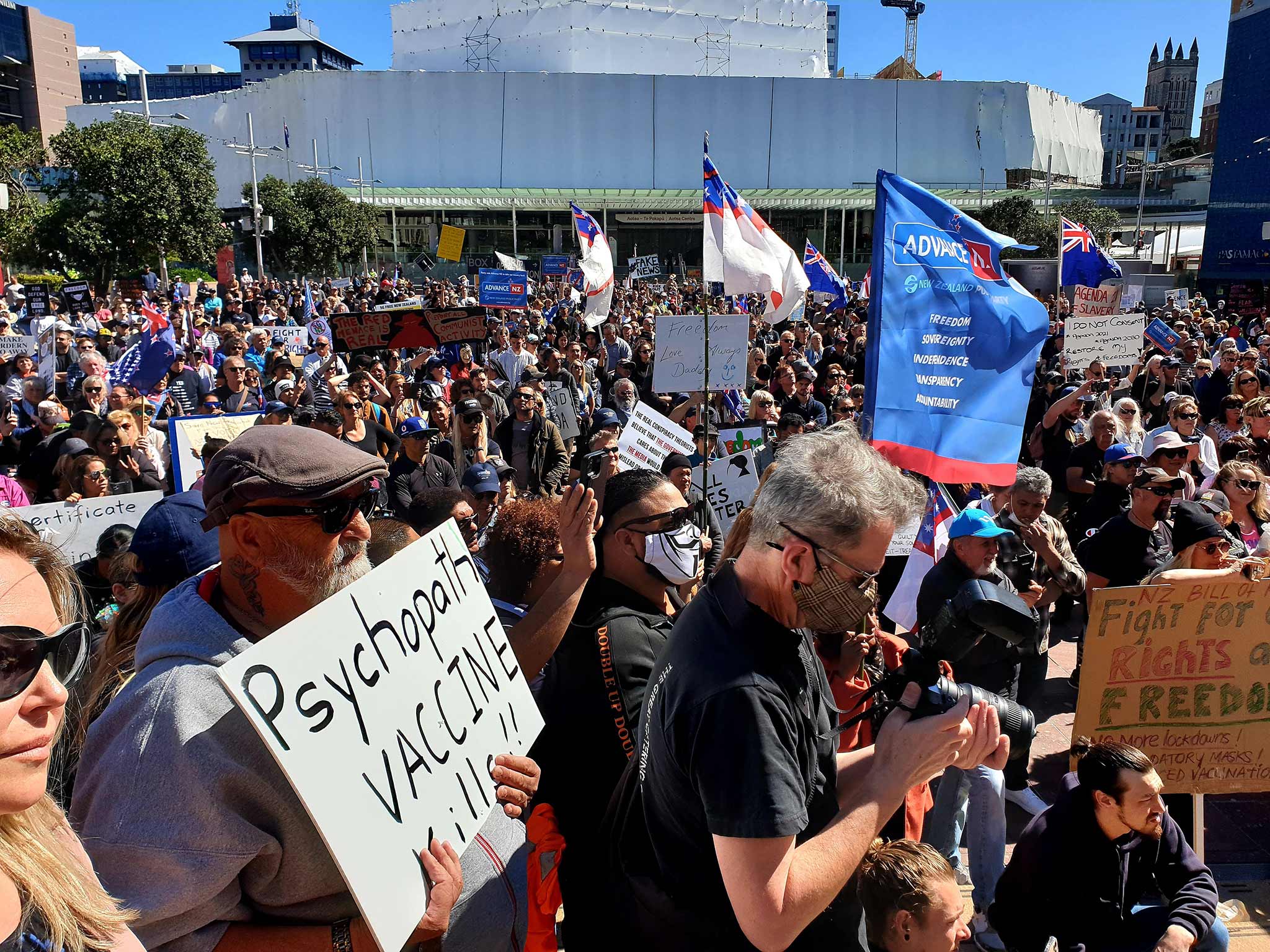
Prime Minister Jacinda Ardern says Cabinet has decided to extend current alert levels on 14 September.
“On the advice of the director-general, Cabinet has decided on a short extension to the current restrictions of Alert Level 2.5 for Auckland and Level 2 for the rest of the country.”
For Auckland, Cabinet will review the current level at a meeting on Monday 21 September with a view to increase gathering limits, depending on whether the cluster is contained.
If that change is agreed on, it will come into force on 23 September, Ardern says.
National Party leader Judith Collins, speaking at an education policy announcement that day, says the alert level moves are starting to look “very political”.
The mini-lockdown is easing with Auckland to move to Level 2, with eased restrictions on gatherings, Prime Minister Jacinda Ardern says.
The rest of the country will be in Alert Level 1 from midnight 21 September.
And the leaders’ debates kick off with Labour leader Jacinda Ardern and National leader Judith Collins facing off in their first televised election debate on 23 September. Polls are showing Labour holding a strong lead over National.
Read part one (January to May) and part three (November and December) of our review of the news of 2020.